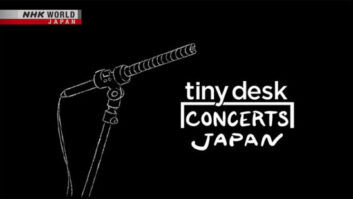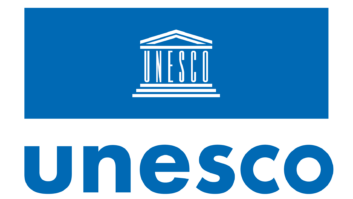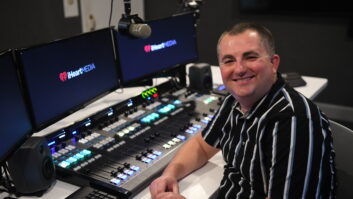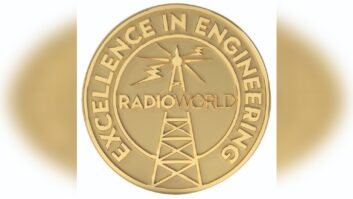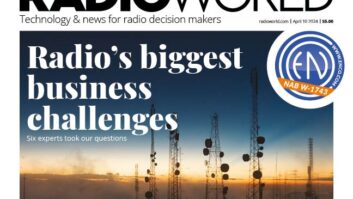When this broadcast thing started, there was a social contract: Broadcasters would serve the mass communications needs of localities and bring people together.
Old days, old ways. Before radio stations became a commodity, it was commonplace to have local news production. �Cost-effectiveness� eventually became more important than the needs of the community. � (Courtesy John Schneider) In return for providing a platform for the public interest, safety and convenience, we could sell some of that access to pay for the staff, power and equipment. If you didn�t serve your community, someone else could get that license.

For the longest time, a station was sellable only for the sum of its assets and a little �good will.�
Then the government regulation went away, consolidation kicked in, and stations were sold on ever-increasing multiples of cash flow. Limits on ownership became fewer and fewer. Once all radio was local; now, not so much.�
Broadcasting was never a great place for making money, though for a couple of generations it was good enough. There are lots of self-published memoirs about good careers way back when.
Today, even as automated as our industry is, the days are still long and the work consuming. Today, making �a living� as a broadcaster sometimes means second jobs, food stamps and things which are basically government subsidies reserved for the fast food industry.
What changed?
I am unaware of anywhere in the world where broadcasters are given so much and with such a free hand. Freedom of speech exists to balance and enhance the public discourse. While radio has been a unique (arguably much more than TV) source of good throughout the world, it has, on occasion, been a force for not-so-good.
Whether you believe that U.S. radio is living up to its potential or not, it�s hard to argue that the big decisions and directions that used to come from those close to the community now, more often than not, come a very small group, serving the needs of the shareholders.
Hard-drives in racks of servers spit out MP3s of tunes and liners and national talk shows are retransmitted every few miles by overlapping stations. Many a cluster doesn�t have so much as a working local studio. I don�t know what the phrase �all broadcasting is local,� even means anymore.
TV�s repack is the ultimate recognition of who now owns the spectrum. In the old days, if the Federal Communications Commission needed the frequency, or thought someone else ought to use it, the FCC merely moved you or failed to renew your license. No one sent you a check for the inconvenience. Today, they pay a station to give up �their� frequency.
Looking back, it seems that the regulation that the industry pushed back against might have had its best interests at heart all along.
Arguably, the value of the radio industry has been stripped away by rounds of sales and profit-taking that lined the pockets of many investors and bankrupted others as they traded in the value that is the license. Somehow the privilege of having a license to use the airwaves was replaced by the right of private parties to sell the no-longer-public airwaves.
Is it possible that when broadcasting is all about profit, it loses its soul? Will the relevance of radio continue to diminish in our communities? Maybe, when this cycle of big business broadcasting has completely cashed out, community interests will once again reign and radio will regain its soul.
In a community, once in a while, someone stands upon the broadcast soapbox and speaks to everyone at once.
The Wandering Engineer is an industry stalwart who has been in broadcasting since the days of Marconi and Tesla. He gives his thoughts on the current state of broadcast engineering and the broadcast engineer.







